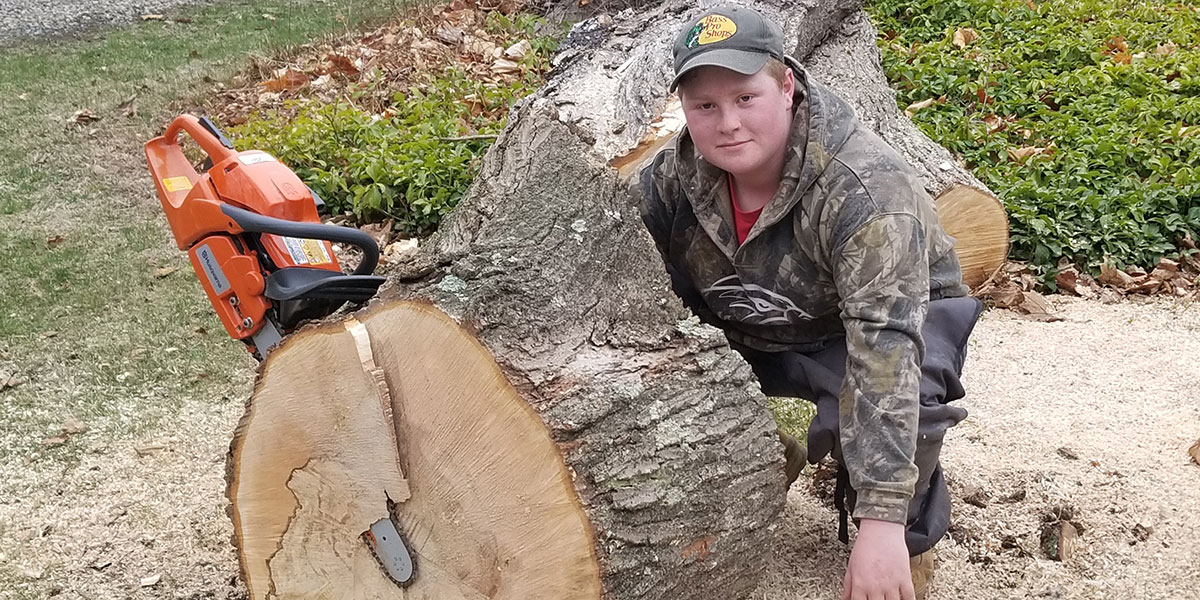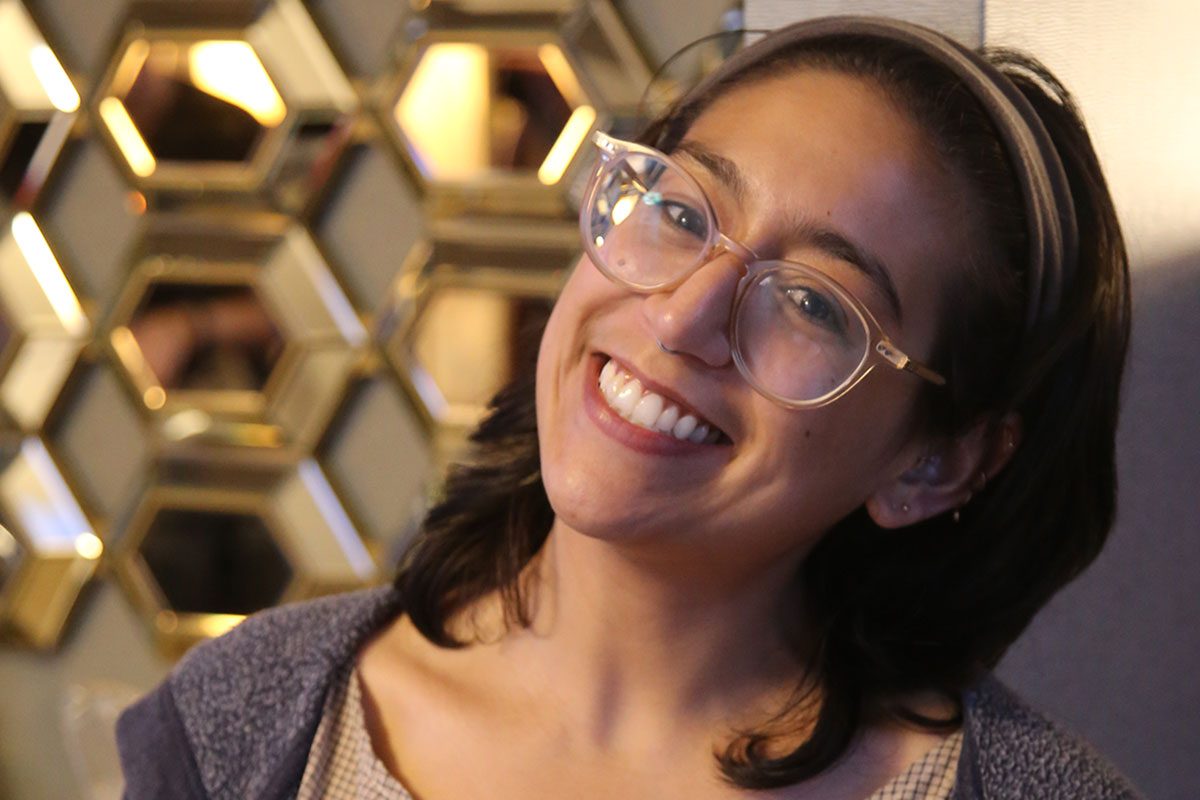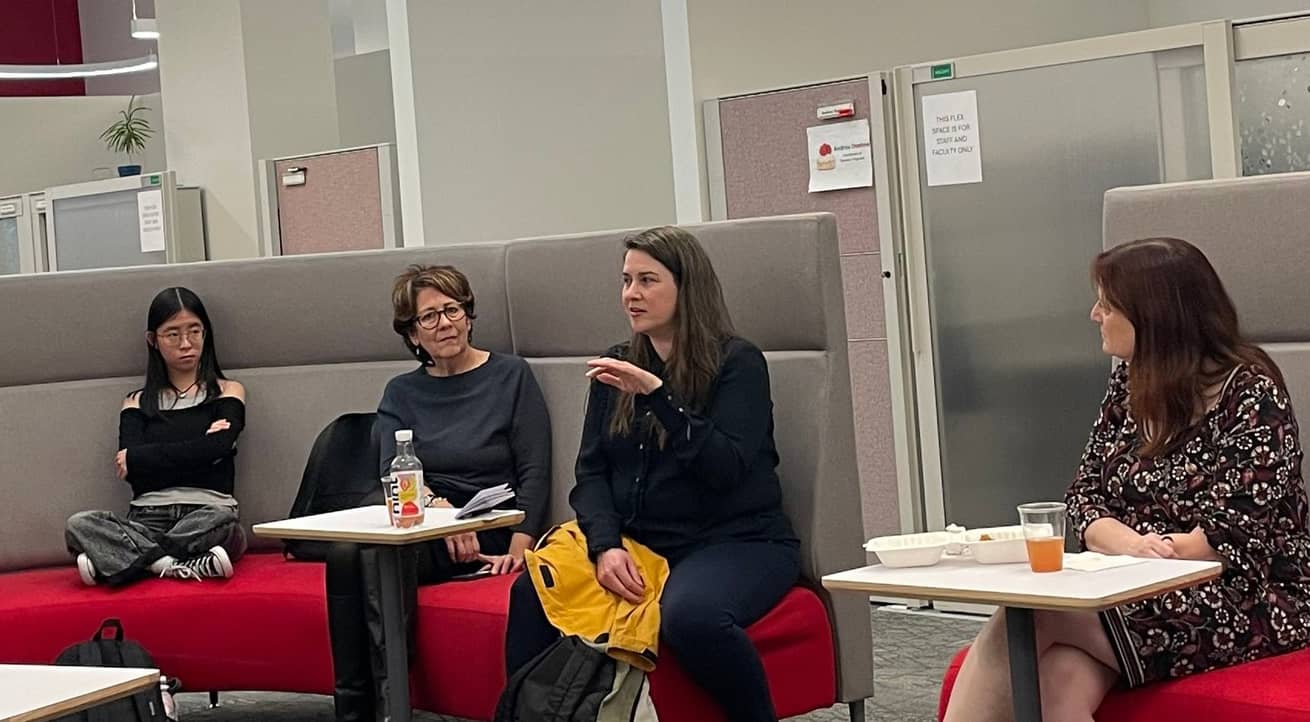On a warm, summer afternoon in South College, a group of 18 high school students gather to consider freedom and liberty for all with the help of four Five College undergraduate teaching assistants (TAs) and UMass Amherst philosophy professors Julia Jorati and Ned Markosian.
Together they explore these concepts through a series of videos the students have created as their final projects. It’s the closing session for Question Everything, a three-week, bridge-to-college summer residential program hosted by the UMass Amherst Department of Philosophy. Each student’s video addresses a pressing social and political topic in the U.S., such as gun control, climate change, book bans, the juvenile correction system, homelessness, and abortion access.
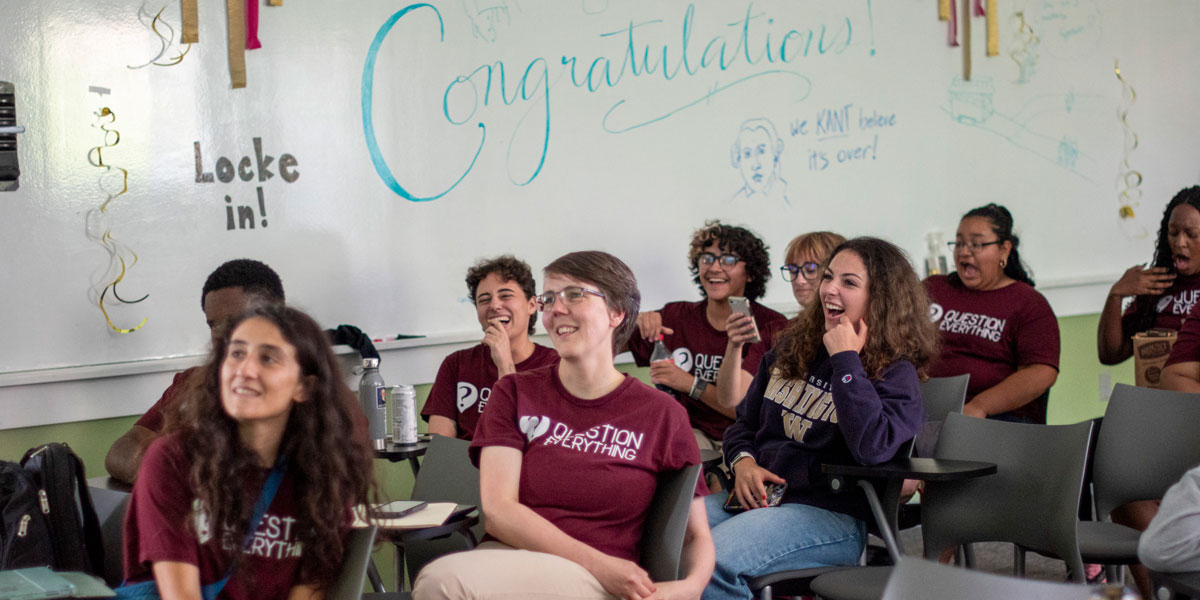
“I am incredibly impressed by your academic abilities,” Markosian says to the students. “You are way ahead of me when I was in high school. I would love to have any one of you in one of my UMass classes right now.”
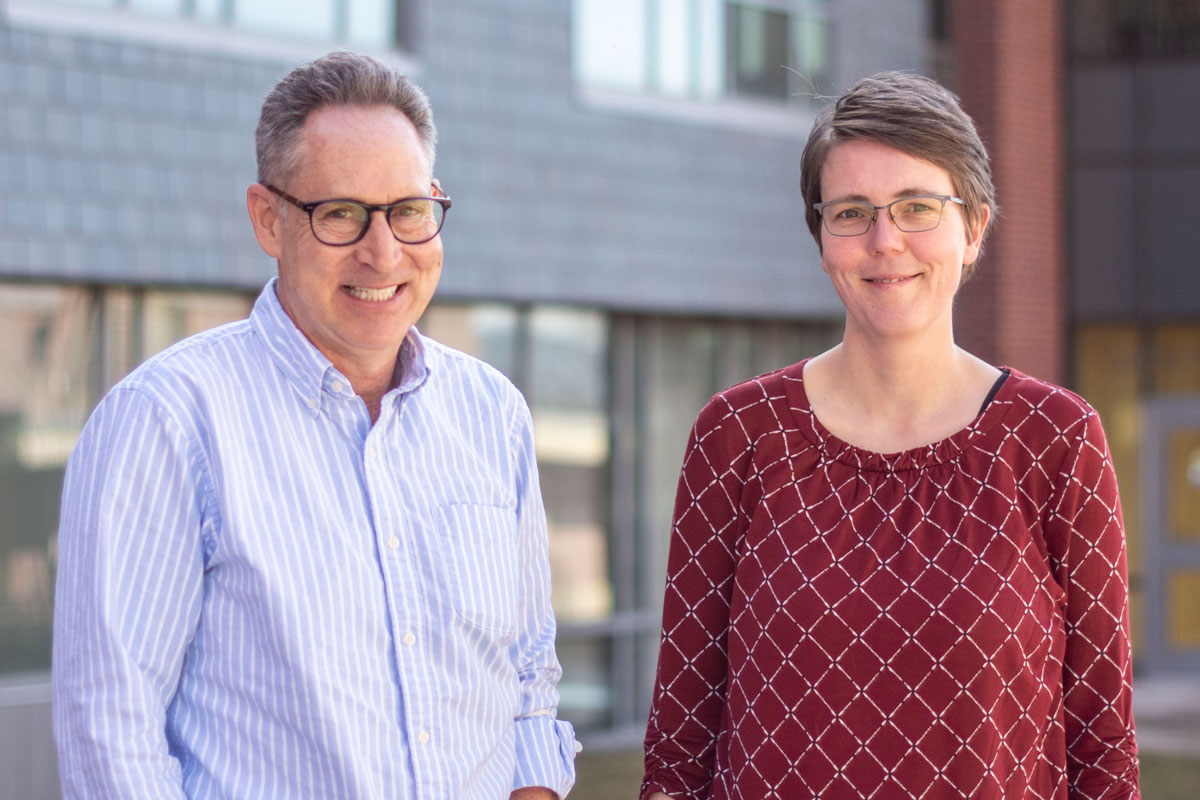
Launched in 2022, Question Everything invites rising high school seniors from Springfield and Holyoke to live on the UMass Amherst campus for three weeks as they study philosophical topics, hone critical-thinking and communication skills crucial for college success, navigate the university application process, and earn college credit. The participants are predominantly from low-income families and from groups that are traditionally underrepresented in higher education.
An average day in the Question Everything program begins with breakfast on campus. It’s followed by a 9 a.m. class taught by program co-directors Jorati and Markosian, which often features guest speakers or small-group activities. In the afternoons, undergraduate TAs lead discussion sections, where students work on projects, prepare for mock trials, and develop key college-level reading and writing skills. Twice a week, students have a college prep session called College Ready, a collaboration with Upward Bound.
“The students in our program are rising seniors and many of them attend under-resourced schools. So we want to guide them through the college application process,” Jorati says.
To evaluate how students felt at the end of this summer’s session, Markosian and Jorati distributed an anonymous survey that invited students to share feedback.
“I loved how inclusive this program was,” wrote one student. “It made me think about things I never would have thought about before. It was fun to debate and just have fun. I will definitely look more into philosophy.”
Another student echoed the sentiment.
“I had a great time here, and this is one of the only classes in my life I haven’t dreaded going to. If I could do this program again, I’d never stop coming back.”
In addition to classroom discussions and learning, students take field trips to places like Historic Deerfield, where they explore the history of slavery in western Massachusetts, and Amherst College to compare different types of higher-education settings. Evenings and weekends are filled with social activities and outings, organized through UMass’s Pre-College Summer programs.
The undergraduates who serve as TAs are “great mentors for the program participants, naturally, because they're in college and went through the application process recently,” Markosian says. “They also have a lot to say about being a philosophy student or humanities student in general, and about the value of the liberal arts.”
Jorati agrees. “It’s a very expansive experience and a great resume builder for both participants and undergraduate students.”
Though the mission of Question Everything has remained the same through the years, the program has evolved to meet the needs of its participants. Since 2023, for example, students have been invited back to the UMass Amherst campus several times during their senior year for additional mentorship and guidance through the college application process.
“One of my main goals is that, at the end of this program, students will be really excited to go to college. Moreover, we want to help them get into a very good college and succeed once they are there,” Jorati says. “I also want them to feel more excited about philosophy. Most come in not knowing what philosophy even is and end up liking it. I do hope they’ll have a positive impression of philosophical topics and consider taking a few more classes.”
Most students who complete the residential program go on to apply to college, with some even enrolling at UMass Amherst.
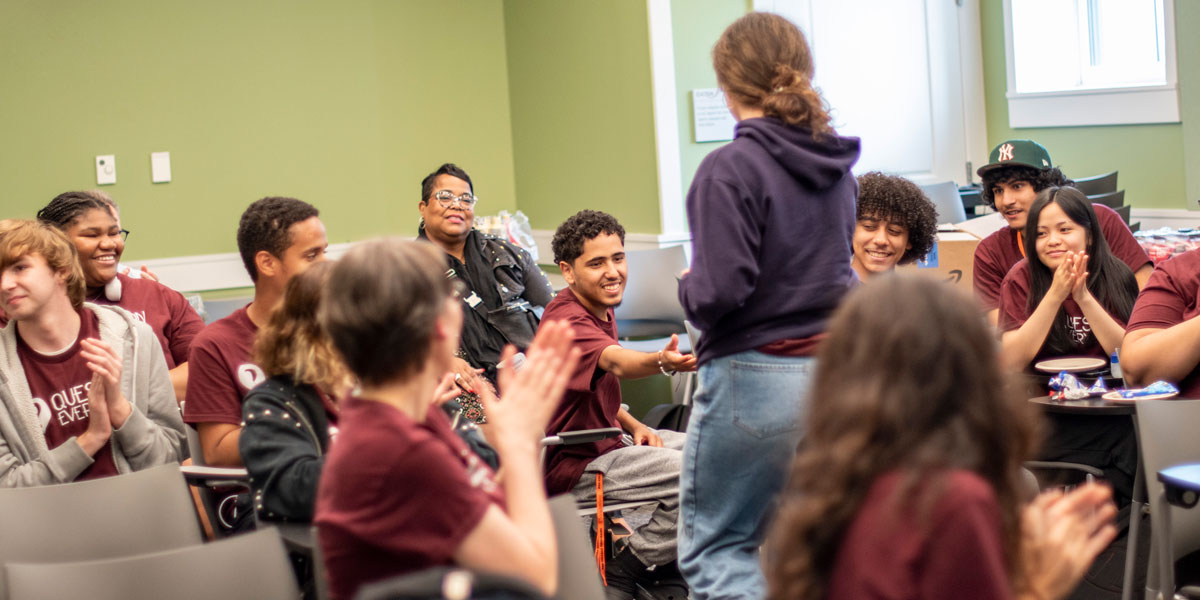
“We’re hoping down the line we might have some students who want to become TAs,” Markosian says.
Through Question Everything, students can see the humanities as both an essential field of study and a viable path to a good career.
“In the age of AI, it’s even more important to train people to think for themselves. We need people who excel at critical thinking and who can be critical of what AI puts out. There are very few programs like this that are fully funded and that are humanities focused. Many programs are STEM focused, and it’s important to us to show that the humanities are an option.”
Julia Jorati, co-director for the Question Everything program
Funded by a $250,000 grant from the Teagle Foundation’s Knowledge for Freedom Initiative, Question Everything has been able to provide full scholarships to all students, covering room, board, instruction, fees, and activities.
This year, funding from the College of Humanities and Fine Arts allowed the program to provide small stipends to participants, helping offset any income that would be lost from summer jobs. For many students, this support is essential to make attending the three-week program financially feasible.
With the Teagle grant ending soon, sustaining the program will require new sources of support.
“This fall, we’re applying for a bridge grant for the Teagle, which would be slightly smaller. We will need to raise additional funds to run the program,” Jorati says. “My biggest hope is that we can keep it going.”
For Markosian, the future of Question Everything could expand beyond the Pioneer Valley.
“Dreaming even bigger, our hope is that our program would be an example that other universities can copy. It doesn’t have to be philosophy—it could be for any discipline,” he says. “I just wish there were more summer programs like this for students everywhere.”
Support Question Everything to give high school students access to mentorship, independence, critical-thinking skills, and college preparation.
- Revolutionize Access
- College of Humanities and Fine Arts

